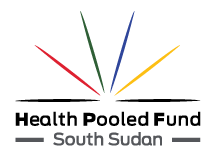Promoting integration of family planning into health interventions in South Sudan

In 2017, the Government of South Sudan became an FP2020 commitment maker, citing family planning as critical to improving the lives of its women and girls and positioning the country on the path towards a demographic dividend. Nevertheless, South Sudan still struggles with maternal and child mortality having one of the highest rates globally.
Myths, beliefs and misconceptions about family planning have worsened the situation hindering initiatives to improve reproductive health in the country. An evaluation carried out by The Department for International Development (DFID) and Global Affairs Canada in July 2018 noted that harmful gender roles and social norms remain a barrier to access in many communities, especially in situations where there is low literacy and high rates of poverty. Some of the main challenges cited with accessing health care for women were the ‘rigid roles’ set for men and women. For example, in most cases women were expected to continue with domestic chores even when sick.
Majority of the women prefer using traditional family planning methods. The situation is worsened by the limited information and access to services at the community level. In addition, with Health Care Workers’ poor attitude and infection prevention on Long Lasting Reversible Method (LARM) on FP that makes clients afraid to use FP services.
Health practitioners need to come up with innovative and proactive ways of creating demand for FP services to be integrated into different health sectors like nutrition, OPD-Out Patient Department and in-patient department to provide a holistic approach.
It is also important to address discrimination and stigma that inhibit key populations such as survivors of female sex work and people living with HIV from utilising FP services for example some victims are denied access to FP services.
The Health Pooled Fund (HPF) is focusing on building the capacity of healthcare workers, Implementing Partners (IPs) and State Ministry of Health (SMoH) to create demand for FP among women in the reproductive age group.
By continuously improving the capacity of our workers to effectively provide counselling services and equip them to be able to technically provide Modern FP Methods, this will lead to an increase in the number of women accessing FP services, reduce use of traditional FP methods and the incidence of unwanted pregnancies.
HPF has already equipped 30 trainers and 8 specialist who have integrated FP into community and facility levels that include community engagement, nutrition, Gender Equality & Social Inclusion (GESI) and Post Natal Care (PNC) component.
Data shows that there has been an increase in numbers of FP commodities distributed between March 2017 to February 2018 compared to March 2018 – February 2019.

Apart from trainings and other engagement methods, more women are now accessing modern family planning methods. There is an association between community engagement and referral for service delivery to increase utilisation.
